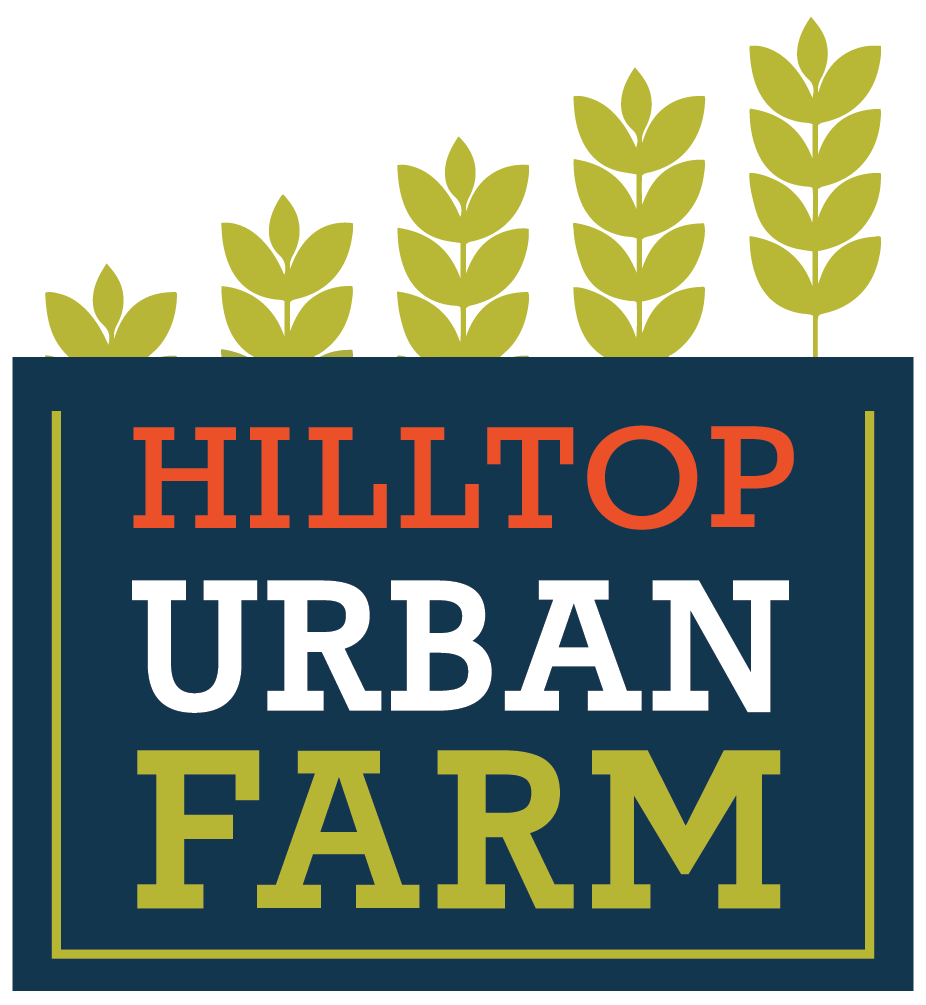Reimagining Hilltop Neighborhoods
mt. oliver city & st. clair
Like the city of Pittsburgh itself, the site of Hilltop Urban Farm has a story that is marked by chapters of decline and resurgence. Originally wooded and then cleared during European settlement for land and residences, St Clair, a south Pittsburgh neighborhood, became a part of the City of Pittsburgh in 1923. Families earned their living farming in the tiny neighborhood selling their produce in Pittsburgh’s Strip District, a neighborhood well-known for its abundance of food options including produce, meats and seafood, and ethnic foods. As steel mills shuttered and Pittsburgh’s population declined, the community of St. Clair faced multiple setbacks. Many residents left, farms dried up, and a neighborhood that once boasted apple orchards became known for crime and decay.
The former St Clair Village site. Locations of the housing building that were demolished.
Yet despite these challenges, a commitment to the community has remained intact. Past and current residents share a desire to reinvest in the neighborhood. Put simply, it’s a neighborhood that is ripe with the promise of re-imagination. Hilltop Urban Farm ushers in a new and much-need chapter, one rooted in growth and community advancement.
Feeding a Food Desert
PROBLEM
The St. Clair neighborhood, where the Hilltop Urban Farm is located, has been designated by the United States Department of Agriculture (USDA) as a food desert. ‘Food Deserts’ are low-income communities that are devoid of fresh fruit, vegetables, and other healthful whole foods. The St. Clair neighborhood was identified one of the Top 5 locations with low food access in Allegheny County, PA by Just Harvest in its 2013 report “A Menu for Food Justice: Strategies for Improving Access to Healthy Foods in Allegheny County.” The nearest supermarket for St. Clair residents is located 1.8 miles away. Currently 99% of the $700,000 grocery retail demand leaves the St. Clair and Mt. Oliver City neighborhoods.
SOLUTION
Food desert communities face a lack of grocery stores, farmers' markets, and healthy food providers. Hilltop Urban Farm seeks to turn what is currently a food desert into a food-production resource, one that is abundant with access to healthy food.
Growing Food, Growing Farmers
The purpose of Hilltop Urban Farm can be characterized by one word: growth. Growth by design. Growth by education. And growth by community engagement.
We seek to grow farmers of all ages who share in the task of growing food. Our school-based programs engage children with the hands-on practice of agriculture, while our adult-focused workforce training programs provide the tools, education and resources needed for new farmers to successfully operate an urban farm. By growing farmers both short and tall, we aim to transform underutilized land into an agriculturally and economically vibrant resource, one that actively engages the community it serves.
Our farming practices are rooted in the principles of permaculture and organic farming. A system of intelligent design, permaculture integrates land, resources, people and the environment through mutually beneficial synergies that reflect those seen in diverse natural systems. Hilltop Urban Farm regenerates urban soils through regenerative agriculture practices and permaculture designs.
The result: we are growing food where there is none.
To get involved with neighborhood projects in St. Clair please contact the Mt. Oliver City/St. Clair Community Group (MOCSCCG), which hosts quarterly public community meetings. MOCSCCG is a Board member organization of the Hilltop Alliance.

